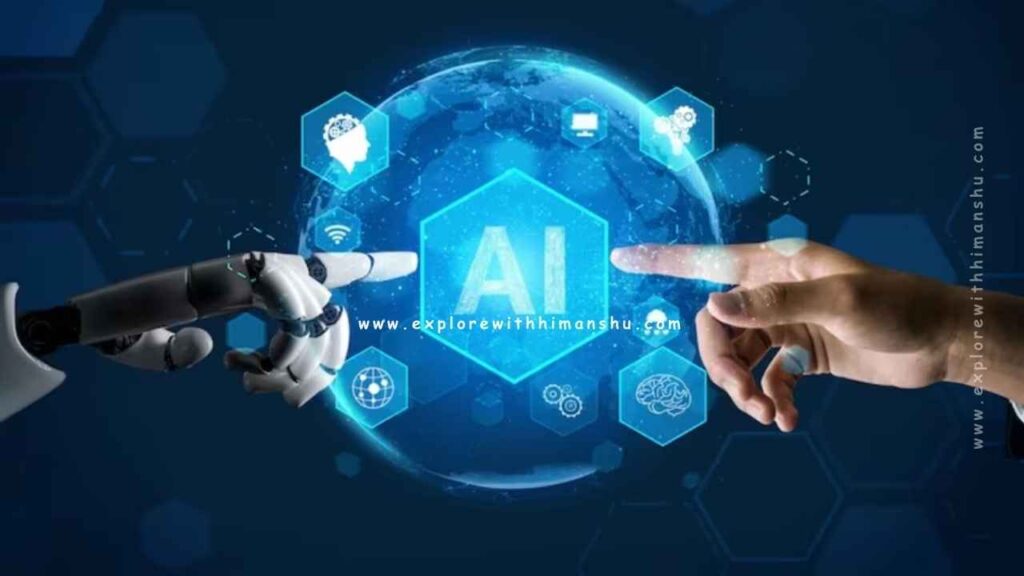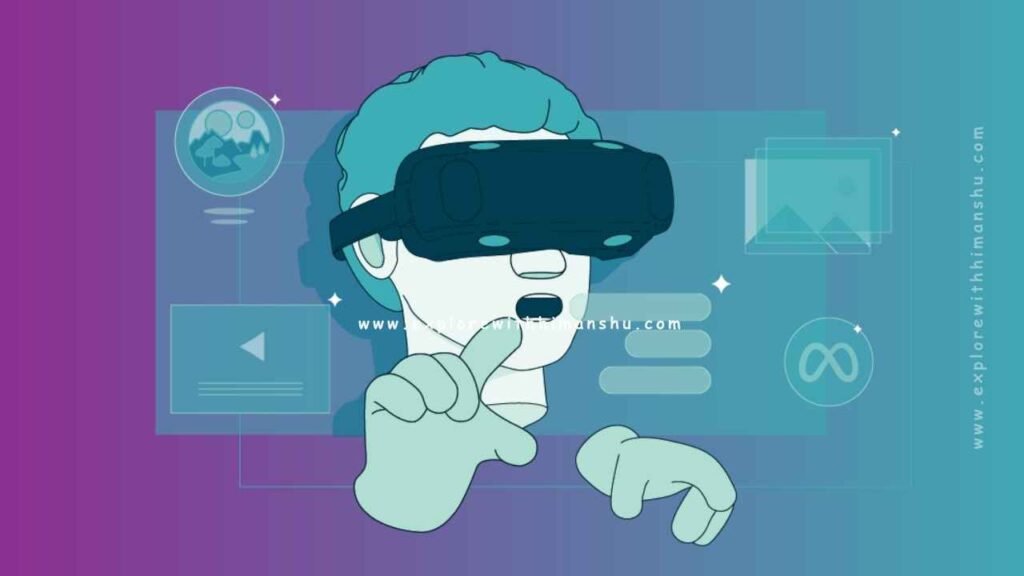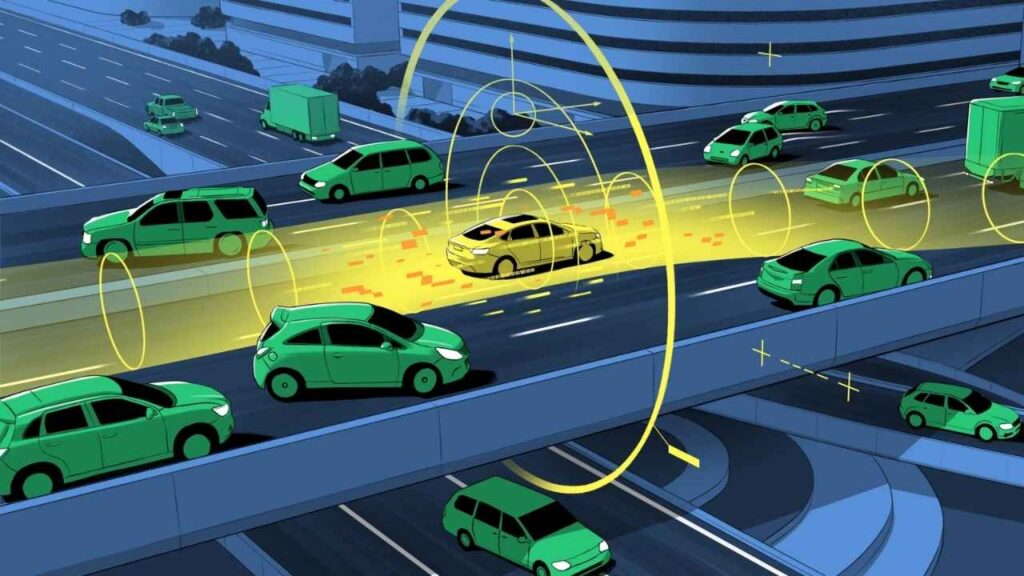As we step into 2025, the technological landscape is evolving at an unprecedented pace. With advancements in artificial intelligence, quantum computing, blockchain, and more, industries are transforming rapidly. Businesses, professionals, and tech enthusiasts need to stay informed to leverage these changes for growth and innovation.
Discover the top technology trends of 2025, including AI, quantum computing, metaverse, and more. Learn how these innovations are shaping industries with real-world examples, case studies, and insights. Stay ahead in the digital era!
In this detailed guide, we will explore the top technology trends of 2025 with examples, tables, and a case study to illustrate their real-world impact.

1. Artificial Intelligence (AI) Expansion
Overview
AI continues to revolutionize various sectors, enhancing efficiency and enabling new capabilities. In 2025, AI’s role is more pronounced in areas like healthcare, finance, and customer service.
Key Developments:
- Generative AI: AI-powered tools are creating personalized marketing campaigns and improving customer interactions.
- AI Ethics and Regulation: There is an increased focus on ethical considerations and regulatory frameworks to address concerns about bias and privacy.
Examples & Applications:
| Industry | AI Use Case | Impact |
|---|---|---|
| Healthcare | AI-driven diagnostics & treatment plans | Faster, more accurate diagnosis |
| Finance | AI for fraud detection & risk assessment | Enhanced security & efficiency |
| Retail | AI-powered chatbots & recommendations | Improved customer engagement |
2. Quantum Computing Breakthroughs
Overview
Quantum computing is transitioning from theoretical research to practical applications, promising to solve complex problems more efficiently than traditional computers.
Key Developments:
- Industry Applications: Sectors like pharmaceuticals and logistics are exploring quantum algorithms to accelerate drug discovery and optimize supply chains.
- Investment in Infrastructure: Major tech companies are investing heavily in quantum infrastructure, bringing us closer to mainstream adoption.
Examples & Applications:
| Sector | Quantum Computing Application | Expected Impact |
|---|---|---|
| Healthcare | Drug discovery & personalized medicine | Faster, more effective treatments |
| Finance | Risk modeling & portfolio optimization | Improved investment strategies |
| Logistics | Supply chain & route optimization | Reduced costs & delivery times |

3. Metaverse Expansion
Overview
The metaverse is evolving beyond gaming into virtual workplaces, educational platforms, and e-commerce hubs, creating immersive digital experiences.
Key Developments:
- Virtual Collaboration: Companies are adopting virtual reality (VR) spaces for meetings and team-building activities.
- Educational Platforms: Universities and online educators are integrating VR for immersive learning experiences.
Examples & Applications:
| Industry | Metaverse Application | Benefits |
|---|---|---|
| Corporate | Virtual offices & remote collaboration | Increased productivity & engagement |
| Education | VR-based interactive learning | Better knowledge retention |
| Retail | Virtual shopping experiences | Enhanced customer experience |
👉 Best AI-Powered Tools for Business
4. Sustainable Technology Initiatives
Overview
Sustainability is at the forefront, with green technology driving innovations in energy, manufacturing, and transportation.
Key Developments:
- Renewable Energy Systems: Advancements in solar and wind energy are making renewable sources more accessible and efficient.
- Circular Economies: Companies are focusing on recycling and reusing materials to minimize waste.
Examples & Applications:
| Sector | Sustainability Initiative | Environmental Impact |
|---|---|---|
| Energy | Solar & wind energy adoption | Reduced carbon footprint |
| Automotive | Electric vehicles & battery tech | Lower greenhouse gas emissions |
| Retail | Sustainable packaging solutions | Less plastic waste |

5. Autonomous Vehicles and Drones
Overview
Autonomous technologies are transforming transportation and logistics, with self-driving cars and drones becoming more prevalent.
Key Developments:
- Urban Deployment: Self-driving cars are being tested and implemented in urban areas for public transportation.
- Drone Deliveries: Companies are using drones for package deliveries and aerial inspections.
Examples & Applications:
| Sector | Autonomous Technology | Key Benefits |
|---|---|---|
| Transport | Self-driving taxis & buses | Reduced congestion & pollution |
| Retail | Drone-based delivery systems | Faster & more efficient logistics |
| Agriculture | Drones for crop monitoring | Improved yield & resource use |
Case Study: The Impact of AI in Healthcare
Background: A leading hospital implemented an AI-driven diagnostic tool to improve patient outcomes.
Findings:
- Faster Diagnosis: AI reduced the time to diagnose critical illnesses by 40%.
- Improved Accuracy: Machine learning models achieved a 95% accuracy rate in detecting diseases.
- Cost Reduction: AI-based automation reduced operational costs by 30%.
Results & Future Implications:
- Expansion of AI in Other Departments: Hospitals are now integrating AI for surgery planning and patient management.
- Global Adoption: Other healthcare institutions are following suit, leveraging AI for better medical outcomes.
For Table Examples :-
Findings:
| Metric | Before AI Implementation | After AI Implementation |
| Diagnosis Time | 6 hours | 3.6 hours (40% reduction) |
| Accuracy Rate | 80% | 95% |
| Operational Costs | High | 30% reduction |
Conclusion – Top Technology Trends
The technology trends of 2025 promise to reshape industries and daily life. From AI and quantum computing to sustainability and the metaverse, these innovations present exciting opportunities. Businesses and professionals must stay ahead by embracing these trends, ensuring they remain competitive in an ever-evolving digital landscape.
Businesses that embrace these emerging technologies will gain a competitive edge, while individuals who adapt will find new career and investment opportunities. Understanding and leveraging these trends can help companies streamline operations, improve efficiency, and create better user experiences.
As we move further into 2025, industries must focus on ethical AI deployment, sustainable energy solutions, and digital transformation strategies to stay ahead. The rise of AI-driven analytics, quantum-powered computing, and immersive digital spaces will continue to push the boundaries of what is possible.
To remain competitive in this evolving landscape, organizations and professionals must commit to continuous learning, innovation, and adaptability. The future belongs to those who embrace change and harness the power of technology to drive progress. With these advancements shaping our world, 2025 is set to be a landmark year for technological evolution.
By understanding these key trends and leveraging emerging technologies, individuals and organizations can position themselves for success in 2025 and beyond.
What are your thoughts on these technology trends? Are you already leveraging any of these innovations in your industry or business? Share your opinions and experiences in the comments below!


